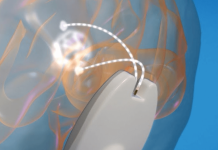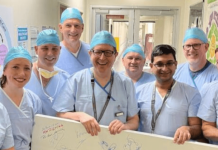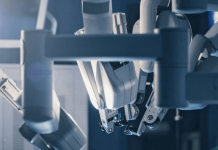The acquisition reflects Teleflex’s commitment to investing in the estimated US$10 billion interventional cardiology and peripheral vascular market. A company press release states that the acquired business will expand the Teleflex portfolio to include a broad suite of vascular intervention devices such as drug-coated balloons, drug-eluting stents, covered stents, balloon and self-expanding bare metal stents, and balloon catheters.
“We are excited to announce the acquisition of Biotronik’s Vascular Intervention business, which we anticipate will significantly enhance our global presence in the cath lab, expand our suite of innovative technologies, and improve patient care” said Liam Kelly, chairman, president and chief executive officer of Teleflex.
“We believe the acquisition will allow us to position this advanced coronary portfolio alongside our existing Interventional business and establish our global footprint in the fast-growing peripheral intervention market. In particular, the acquired coronary products will be highly complementary to our well-established complex percutaneous coronary intervention (PCI) platform and expand and enhance the legacy Interventional salesforce and offerings by combining existing Teleflex access products with the Vascular Intervention therapeutic devices.
The acquired business is rooted in robust research and development, clinical expertise, and global manufacturing capabilities, which we believe will further bolster Teleflex’s innovation pipeline, and position the company to participate in the emerging potential for resorbable scaffold technologies. We believe the acquired business will be a meaningful contributor to our growth in the coming years, diversify our geographic revenue mix with 50% of the acquired revenues generated in Europe, the Middle East and Africa, and provide additional scale for investment into innovation.”
The company states that the acquisition of the Vascular Intervention business will also allow Teleflex the opportunity to invest in and expand the clinical trial programme for Biotronik’s Freesolve, a sirolimus-eluting resorbable metallic scaffold (RMS) technology, including possible pursuit of the US market. Freesolve, which received its CE mark in February 2024, is indicated in CE-mark accepting countries for de novo coronary artery lesions.
The combination of temporary scaffolding with drug delivery is anticipated to address the current trend in interventional coronary and endovascular procedures toward leaving behind less permanent hardware. As demonstrated in the BIOMAG-I study, Freesolve RMS demonstrated resorption after 12 months, a target lesion failure rate comparable to contemporary drug-eluting stents, and no definite or probable scaffold thrombosis. The European pivotal BIOMAG-II study is now enrolling.
As the interventional cardiology and peripheral intervention markets grow on a global basis, Teleflex anticipates that this acquisition will enhance its offerings to cardiac and peripheral care specialists, while significantly advancing its corporate growth objectives.




